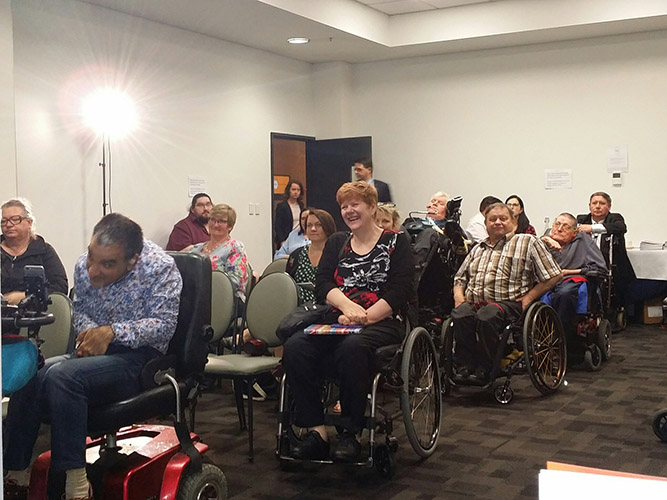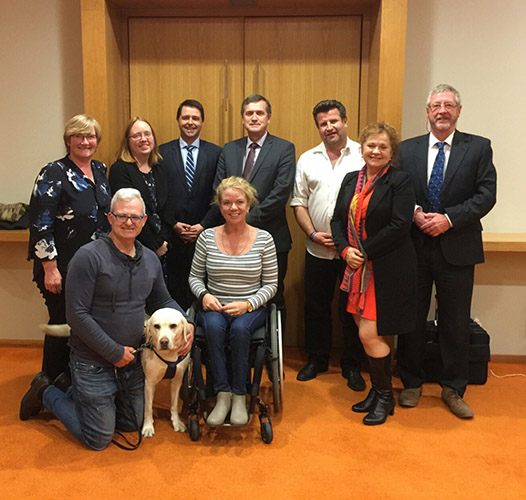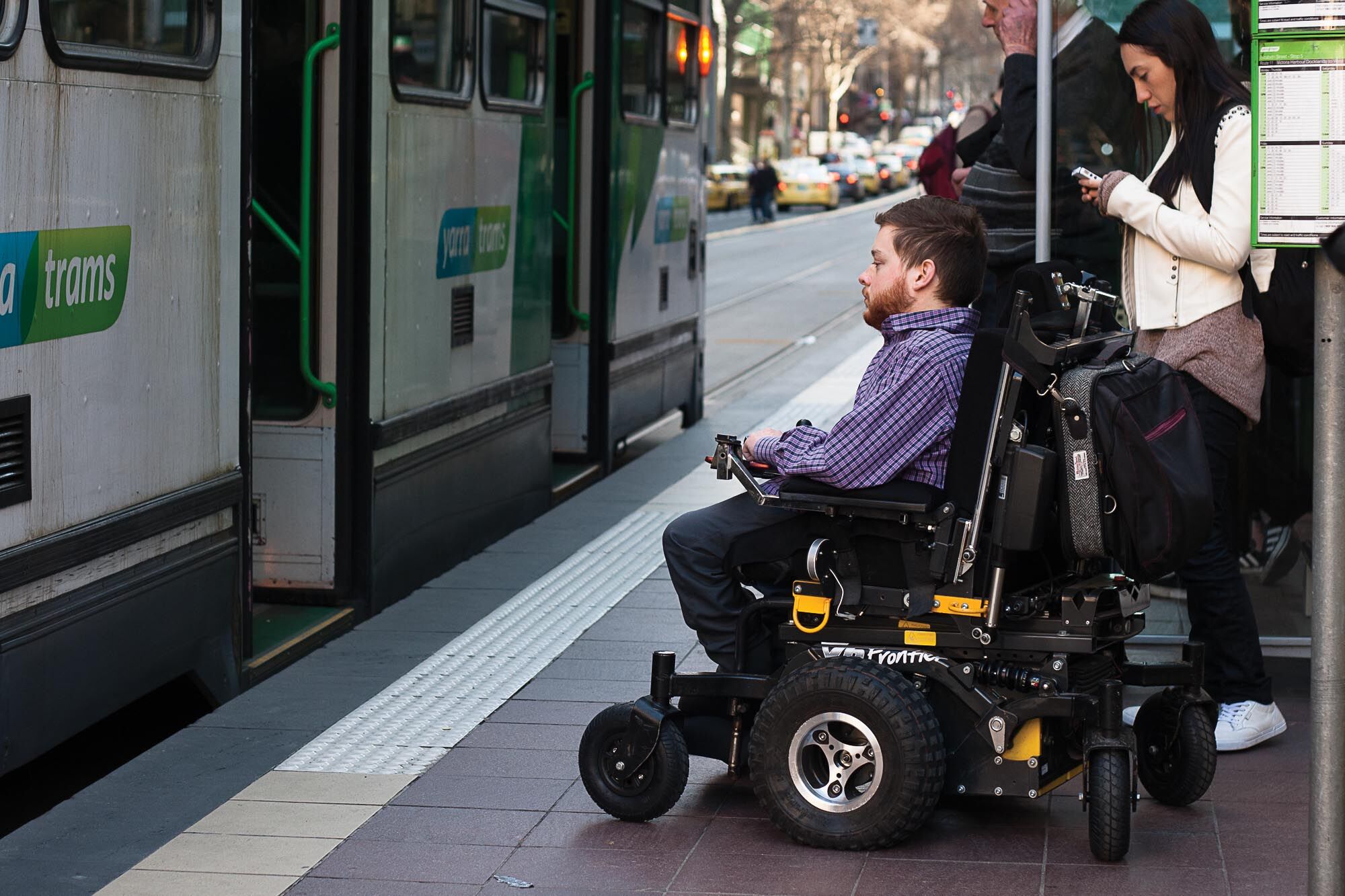
A photo of the audience at AFDO Information Forum 2017.
AFDO’s national policy program provides systemic advocacy to break down the barriers of inequity and injustice that Australians with disability face each day. We work to remove these barriers through the development of evidence-based policy that draws on the expertise of people with disability. We do this by talking with our members, which are organisations made up of people with disability and/or their families.
We work to ensure that the review of current legislation and the development of new legislation is fair and representative of people with disability. Our systemic advocacy and policy are underpinned by the United Nations Convention on the Rights of Persons with Disabilities (UNCRPD), the Disability Discrimination Act (DDA) 1992, the National Disability Strategy (NDS), and the National Disability Insurance Scheme (NDIS) Act 2013.
Policy PrioritiesOur current policy priorities are: 1. Violence, Abuse and Neglect of people with disability 2. Access to Justice 3. People with disability in the National Disability Insurance Scheme (NDIS) 4. Affordable Housing 5. Better Health for people with disability 6. Public Transport 7. Advocacy and Inclusion
|
Position Statements
AFDO often works with other organisations in the sector on Joint Statements, or we are asked to endorse Position Statements from other organisations. Please follow this link to read recent Position Statements that AFDO has endorsed.
Policy information and resources
Convention on the Rights of Persons with Disabilities
The Convention on the Rights of Persons with Disabilities (CRPD) is an agreement by countries around the world to make sure that people with disabilities and people without disabilities are treated equally. The CRPD was adopted by the United Nations General Assembly on 13 December 2006. It opened to signatures on 30 March 2007 and came into force on 3 May 2008, following ratification by the 20th State Party. Australia ratified the Convention and its Optional Protocol on 17 July 2008 and joined other countries around the world in a global effort to promote the equal and active participation of all people with disability in society and community life.

A photo of National Disability Peak Organisation (DPO) Representatives with Alastair McEwin, Former Disability Discrimination Commissioner.
The Disability Discrimination Act (DDA) 1992
The Disability Discrimination Act (DDA) provides protection for everyone in Australia against discrimination based on disability. The Commonwealth DDA was enacted in 1992, and makes it unlawful to discriminate against a person who has, has had, or may have a disability. This includes the provision of goods, services or facilities. The DDA also makes it unlawful to discriminate against a person on the basis that one of their associates may have a disability.
The National Disability Strategy
The National Disability Strategy (NDS) is a 10-year national plan (2010-2020) for improving the life experiences of Australians with disability, their families and carers. It seeks to foster an inclusive society that helps people with disability to fulfil their potential as equal citizens. It was endorsed by the Council of Australian Governments in February 2011.
The National Disability Insurance Scheme Act 2013
The National Disability Insurance Scheme Act 2013 (NDIS Act) is the legislation that established the National Disability Insurance Scheme (NDIS), and the National Disability Insurance Scheme Launch Transition Agency (known as the National Disability Insurance Agency or NDIA). The NDIS Act establishes a framework for the NDIS by setting out the objects and principles of the scheme, including people with disability being given choice and control over the care and support they receive.

Carl Thompson waiting at an accessible tram stop.
If you like the work we do, you can make a one-off donation or a regular monthly donation by selecting the ‘Support Our Work’ button below.
Donations of $2.00 and over are tax-deductible.
